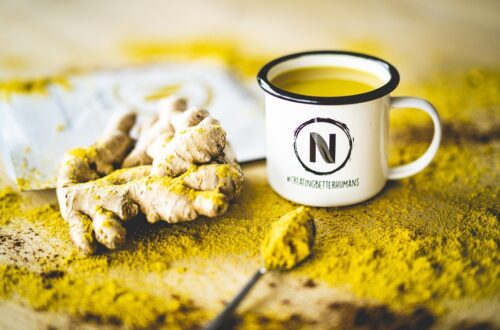Exploring the Doshas: Vata in Ayurveda
In Ayurveda, the concept of “Vaat” (also spelled “Vata”) plays a crucial role. Ayurveda is based on the principle of maintaining harmony between mind, body, and spirit to achieve optimal health and prevent disease.
Vata is considered the most important dosha because it controls the movement and function of the body and mind. It is associated with the elements of air and ether (space).
Vata is responsible for all kinds of movement in the body, including nerve impulses, muscle contractions, circulation, respiration, and elimination. It is also linked to mental processes such as creativity, communication, and flexibility.
Beyond its physical manifestations, Vata is also associated with mental processes, such as creativity, enthusiasm, quick thinking, and adaptability. When Vata is in balance, an individual tends to be lively, energetic, and creative. However, an excess or deficiency of Vata can lead to various health issues.
According to Ayurvedic principles, Vata, along with Pitta and Kapha, constitute the three doshas that govern the mind and body. Understanding the role of Vata is crucial, as an imbalance in this dosha can lead to various health issues.
In this blog, we will explore the characteristics and factors influencing Vata, its effects on health, and effective ways to balance it through diet and lifestyle modifications.
Characteristics of Vata Dosha:
Vata is associated with the elements of air and ether (space), making it responsible for movement and communication throughout the body. Its key characteristics include being dry, light, cold, rough, mobile, subtle, and clear.
Vata regulates bodily functions like nerve impulses, blood circulation, muscle contractions, and the elimination of waste products. On the mental and emotional level, Vata governs creativity, enthusiasm, and quick thinking.
Physical Functions:
Vata governs all types of movement in the body. It regulates the nervous system, including nerve impulses that control muscular contractions and bodily movements. Vata also oversees the circulation of blood and lymph, ensuring nutrients are distributed to various tissues and waste products are eliminated.
Mental and Emotional Functions:
On the mental and emotional level, Vata dosha governs creativity, enthusiasm, spontaneity, and adaptability. A balanced Vata promotes mental clarity, alertness, and quick thinking. However, an excessive Vata can lead to anxiety, nervousness, and restlessness.
Actions of Vata in the Body:
Vata dosha governs the physiological processes of respiration, elimination (bowel movements), speech, blinking, and movement of the limbs. It also plays a role in regulating the menstrual cycle in women.
Signs of Balanced Vata Dosha:
When Vata is balanced, an individual experiences the following qualities:
Creativity and Enthusiasm:
Balanced Vata fosters creativity and inspiration, allowing individuals to think outside the box and embrace new ideas.
Flexibility and Adaptability:
They can easily adapt to changes in their environment and life circumstances without feeling overwhelmed.
Clear Thinking and Alertness:
Balanced Vata promotes mental clarity and sharpness, enabling efficient decision-making.
Healthy Digestion and Elimination:
The digestive system functions smoothly, and bowel movements are regular.
Normal Body Movements:
They have ease of movement, coordination, and dexterity.
Good Circulation:
Blood circulation is optimal, promoting healthy skin and body temperature regulation.
Causes of Vata Imbalance:
Various internal and external factors can disturb the balance of Vata in the body, leading to its aggravation. Some common causes include:
Stress and Anxiety:
High levels of stress and emotional turmoil can disturb Vata’s balance, leading to restlessness and nervousness. Prolonged stress can weaken the nervous system and increase Vata’s influence.
Irregular Routine:
Erratic daily habits, including eating, sleeping, and working patterns, can disrupt the body’s natural rhythms and contribute to Vata imbalances.
Weather:
Exposure to cold, windy, and dry climates, especially during the fall and winter seasons, can increase Vata in the body. Cold and dry weather can exacerbate the dry and light qualities of Vata.
Excessive Movement:
Overexertion, excessive exercise, and frequent travel can elevate Vata and deplete the body’s energy reserves. While moderate physical activity is beneficial, excessive movement can disturb Vata dosha.
Improper Diet:
Consuming foods that are too dry, cold, or light can disturb the doshic balance, as Vata is aggravated by these qualities. A diet lacking in nourishing and grounding foods can lead to Vata imbalances.
Suppressed Emotions:
Emotions play a significant role in Ayurveda, and suppressed emotions can create energetic imbalances, affecting all three doshas, including Vata.
Effects of Vata Imbalance on Health:
When Vata is out of balance, it can manifest in various physical, mental, and emotional symptoms:
Digestive Issues:
Gas, bloating, constipation, or irregular bowel movements due to poor digestive function.
Anxiety and Nervousness:
Restlessness, insomnia, difficulty concentrating, and feeling overwhelmed by life’s demands.
Joint and Muscle Pain:
Vata imbalances can cause stiffness, aching, and cracking joints.
Dry Skin and Hair:
Excessive Vata can lead to dryness of the skin, lips, and hair.
Weight Loss:
Significant Vata imbalance can cause weight loss and difficulty gaining weight.
Fatigue:
A sense of constant tiredness and lack of energy.
Reduced Immunity:
Imbalanced Vata can weaken the immune system, making individuals more susceptible to infections and illnesses.
Balancing Vata Dosha
To restore balance to Vata dosha and promote overall health and well-being, Ayurveda offers practical and effective ways to address Vata imbalances:
Establish a Regular Routine:
Create a daily schedule that includes regular mealtimes, sleep patterns, and other activities to bring stability and predictability to your day. This helps to support the body’s natural rhythms and balance Vata.
Stay Warm and Comfortable:
Protect yourself from cold and windy weather, which can aggravate Vata. Dress appropriately and use blankets or warm clothing when needed, especially during the colder seasons.
Practice Relaxation Techniques:
Engage in relaxation practices like yoga, meditation, and deep breathing exercises to calm the mind and reduce stress. These practices promote grounding and help pacify the excess mobility of Vata.
Nourishing Diet:
Favor warm, cooked, and moist foods that are rich in healthy fats, proteins, and carbohydrates. Minimize cold, raw, and dry foods that can aggravate Vata. Incorporate nourishing foods like soups, stews, cooked grains, and ghee (clarified butter).
Stay Hydrated:
Drink warm water throughout the day to maintain hydration and counteract dryness. Herbal teas and warm beverages are also beneficial.
Oil Massage (Abhyanga):
Regularly massage your body with warm sesame oil or herbal oils to soothe the nervous system and promote relaxation. This practice helps to reduce the dry and rough qualities of Vata.
Limit Stimulants:
Reduce the intake of caffeine, nicotine, and other stimulants, as they can overstimulate the nervous system and increase Vata’s influence.
Herbal Support:
Ayurvedic herbs like Ashwagandha, Brahmi, and Shatavari are known for their balancing properties and can be beneficial in managing Vaat imbalances. However, it’s essential to consult an Ayurvedic practitioner before using any herbs.
Emotional Well-being:
Pay attention to your emotional well-being and find healthy ways to express your emotions. Mindfulness practices, journaling, and engaging in activities that bring joy and fulfillment can help with emotional balancing.
Final Thought:
Vata dosha plays a pivotal role in Ayurveda, governing movement and communication in the body and mind. Understanding the role of Vata in Ayurveda is key to achieving optimal health and well-being. When in balance, Vata promotes creativity, adaptability, and overall vitality.
However, an imbalance in Vata can lead to various physical and psychological disturbances. By following Ayurvedic principles and adopting a lifestyle that supports Vata balance, individuals can enhance their well-being and achieve optimal health.
It’s important to note that Ayurveda is a holistic system of medicine, and the treatment approach varies for each individual based on their unique constitution (Prakriti) and the specific nature of the imbalance (Vikriti).
Consulting an experienced Ayurvedic practitioner is recommended to determine an appropriate treatment plan tailored to your needs. They can assess your dosha balance and suggest personalized lifestyle modifications, dietary changes, and herbal remedies to promote health and well-being.


You May Also Like

Spice Up Digestion: Ayurvedic Herbs for a Happy Gut
6 April 2025
Ayurvedic Dietary Principles: Eating Right for Your Dosha
11 January 2025
